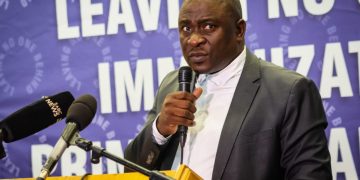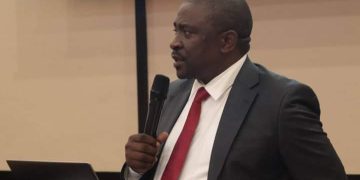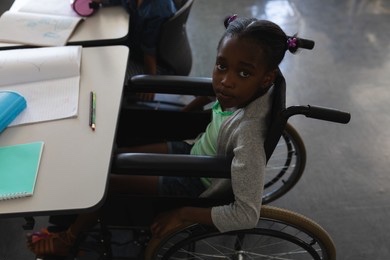Maseru
Disability is a cross-cutting issue, which has implications for coordination in policy drafting to ensure that person’s living with disabilities access assistive devices and attain educational as well as social inclusion.
Lesotho National Federation of Organisations of the Disabled (LNFOD) Executive Director Advocate Nkhathi Sefuthi points out in an interview with the Weekly Observer that children with disability’s learning needs are not being met.
According to Lesotho Inclusive Education Policy 2018, there are five Special Schools located in for Districts, namely Leribe, Maseru, Berea and Butha-Buthe and cater for Learners with Special Educational Needs (LSEN) depending on their various educational needs, “Special Schools are intended cater for LSEN with severe and profound conditions,” wrote the Policy.
The policy also stipulates that it is important to gear education provision towards responding to the needs of previously marginalised members of society and foster an inclusive educational environment for learners with disabilities.
Read more on the subject:
Grade 11 academic performance divides opinions
This, however, has not been the case as Sefuthi describes the government’s lack of political will to implement regulations in line with the Policy, he alleges the Government does no reserve fund to implement the Policy through Ministry of Education and Training’s (MoET) Special Education Unit.
“In practice, the is still a wide gap of meaningful inclusion for children with disabilities despite the existence of the policy, this deficiency is caused by the government’s lack of enforcement, the are no measures taken to ensure the Policy’s effective implementation,” he said.
The Executive Director reported that as a result, Mainstream Schools still refuse admittance of children with disabilities with no consequences, “This recently happen at Butha-Buthe Primary in January when the Principal refused to admit a disabled learner,” Sefuthi added that the Principal failed to provide significant reasoning.
In Mainstream Schools where children with disabilities have been lucky enough to gain admittance, he further points out that lack proper of infrastructure limits mobility and accessibility in said schools, while teachers are not capacitated enough to address the needs of LSEN.
“Teaching institutions do not have comprehensive Inclusive Education courses to capacitate teacher for an inclusive classroom setting, ” he continued.
Sefuthi extended that they do no encourage the Government to have a Special Curriculum for learners with disabilities as it is not standardised nor does it have an accredited certificate.
“Making these children special does not benefit the at all, instead, it further marginalises them in a society that already holds certain believes about person living with disabilities. They cannot further their studies as the Special Curriculum does not have a certificate like your LGCSE, its as if they never attended school as no one recognises their skills,” he continued.
Furthermore, he revealed that the Special schools themselves do not have grades, all students are put in one classroom, many of them with varied learning needs. The division between persons living with disabilities in school inhibits LSEN from being comfortably incorporated into work and social space.
A recent Unicef report revealed that Centres accommodating children living with disabilities pointed out that the children struggle to with accepting themselves, “They can be brilliant and smart, but they are afraid to be out there and seen.”
In addition, since children with disabilities learn slower than those without disabilities, they are often scared to ask for help from their teachers which leads to poor academic performance.
President of Lesotho Teachers Association Ntsibolane Letsatsi underscored that the concept of an inclusive learning environment is new to teachers, secondly, teacher training institutions do not offer Special Education capacitation to all teachers, as a result, unspecialised teachers that have not been oriented for learners with special needs fail to create inclusion in classrooms.
“The Policy is there, but teachers are not ready. They have not been capacitated enough by training institutions and approach LSEN with general knowledge of they think the learners need,” he said.
The President further expressed that this approach is a great challenge to learners with disabilities as teaching and learning is not accommodative of their needs often leading to perceived discrimination by the learners.
For his part, MoET Principal Secretary (PS) replied that they conduct school, centre, distric and regional workshops to capacitate on issues of inclusive education. However, a limited number of teachers are reached with information and training due to limited funds.
“Lesotho College of Education and the National University of Lesotho have special and Inclusive Education programs for pre-service student teachers,” he said.
Majara maintained that his Ministry in collaboration with LNFOD, the Ministry of Social Development and development partners provide assistive technology for LSEN.
“Issues of special education are integrated into different sections of the Ministry, therefore, a budget for the Special Education Unit will not portray accurate figures of the Ministry’s efforts to support learners with special educational needs,” the PS concluded.





